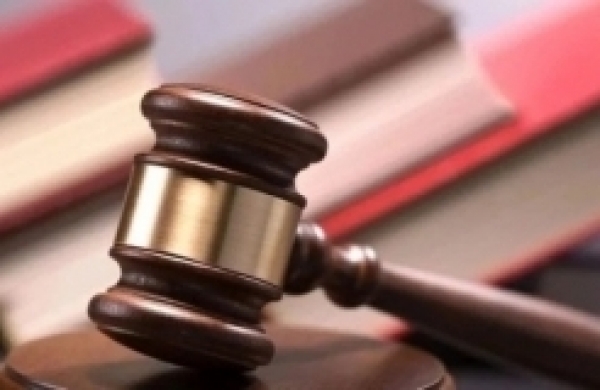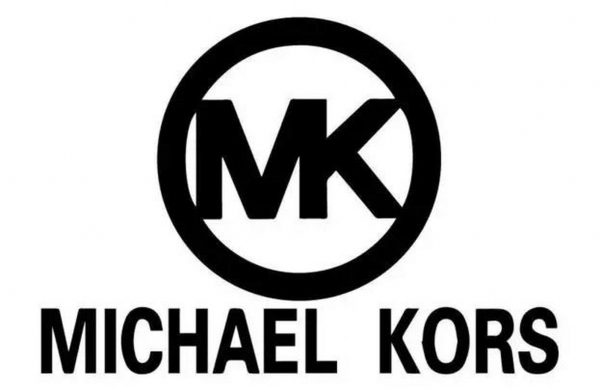Did not receive verification mail? Please confirm whether the mailbox is correct or not Re send mail

IPR Daily
- 2025-04-18 17:48:45
The Supreme People's Court and the Beijing Intellectual Property Court Deliver Dual Verdicts, Finalizing Copyright Ownership of "Ultraman" in China!
Source: IPR Daily
The issue of the copyright ownership of Ultraman has experienced decades of transnational disputes. In 2024, it reached a crucial juncture. The judgment result of a case regarding copyright infringement and unfair competition in the stage play Ultraman Cosmic Light has withstood the test of time and space from the perspective of national intellectual property law. The "double hammer" finalization by the Supreme People's Court of the People's Republic of China (hereinafter referred to as the "Supreme People's Court") and the Beijing Intellectual Property Court (hereinafter referred to as the "Beijing IP Court") not only concludes the copyright battle of "Ultraman" in China but also has far - reaching milestone significance for clarifying the copyright of Ultraman and the development of China's intellectual property legal system.
The Final Judgment of the Ultraman Stage Play Dispute: Tsuburaya Loses
In 2022, Tsuburaya Productions Co., Ltd. (hereinafter referred to as "Tsuburaya") sued Zhuhai Qi'ao Tianzun Culture Development Co., Ltd. (hereinafter referred to as "Qi'aotianzun"), the licensing party of the stage play, and Tianjin Baoyi Culture Communication Co., Ltd. (hereinafter referred to as "Baoyi"), the licensee and the stage play production company, on the grounds of suspected copyright infringement and unfair competition in the stage play Ultraman Cosmic Light.
After the first - instance judgment by the Chaoyang District People's Court of Beijing and the second - instance judgment by the Beijing Intellectual Property Court, it was finally determined that Qi'aotianzun's licensing behavior did not infringe copyright and did not constitute unfair competition. However, Baoyi's unauthorized use of the Ultraman N/A clip in the promotional video infringed Tsuburaya's right of projection. Baoyi was ordered to delete relevant ticket - selling and promotional information, issue a statement on its official WeChat account, and compensate for economic losses and reasonable expenses of 200,000 yuan.
In the judgment, the Beijing IP Court not only re - affirmed the core point of the Ultraman copyright dispute, the "1976 Contract", in line with the judgment of the Supreme People's Court, but also for the first time provided necessary interpretations of the terms of the "1976 Contract". The judgment clearly stated that the authorized objects referred to in the "1976 Contract" were not solely limited to film and television dramas but also included all art elements and "Ultraman" images in film and television dramas. The scope of authorization was not narrowly understood as reproduction in the sense of copyright law but as a broad - sense reproduction behavior in terms of action. Most importantly, the judgment clearly stated that "3.4 copyright" in the original contract was a blanket authorization of copyright property rights.
In fact, this is not the first time that the Chinese judicial system has recognized the "1976 Contract".
The copyright dispute of Ultraman in mainland China began in 2005, which triggered widespread discussion at that time. Eventually, in 2013, the Supreme People's Court ruled that the "1976 Contract" was true and valid, and the Thai copyright holder, Sompote, won the case. This result is of great significance. It not only judicially confirmed the ownership of the Ultraman copyright in China but also was successfully selected as one of the top ten typical intellectual property cases released by the Supreme People's Court that year. It left a profound mark in the intellectual property legal community and became an important reference example for similar cases.
Since then, cases such as the "QianTaomao Case", the "Kayou Case", the "Ultraman Themed Event Case", the "Juhe Stage Play Case", and the "NFT Case" have all revolved around the Ultraman copyright, vindicating Qi'aotianzun's status as a legitimate licensee time and time again.
In the "QianTaomao Case", QianTaomao Company, as a licensee of Qi'aotianzun, had its toy product links on the Taobao platform repeatedly complained about and removed from the shelves by Shanghai Character License Administrative Co., Ltd. (hereinafter referred to as “SCLA”) and others on the grounds of copyright and trademark infringement. Therefore, QianTaomao sued the court, requesting to confirm non - infringement. After the second - instance judgment by the Higher People's Court of Guangdong Province, the authenticity and validity of the "1976 Contract" were also confirmed. It was further pointed out that the use of the cloaked Ultraman image in toys did not exceed the scope of the right of reproduction and was still within the scope of authorization. Therefore, QianTaomao Company was confirmed to be non - infringing.
In the "Kayou Case", Qi'aotianzun took the initiative to file a lawsuit, believing that the Ultraman trading cards produced and sold by Kayou Company infringed its copyright. The Zhuhai Intermediate People's Court (the final - instance court) confirmed the authenticity and validity of the "1976 Contract" after the second - instance judgment and once again confirmed that the cloaked Ultraman image was within the scope of protection of the right of reproduction, further consolidating the foundation of the copyright ownership of the classic Ultraman series. Qi'aotianzun won the case.
In addition, in the "Themed Event Case", the "No. 4972 Stage Play Case", and the "NFT Case", Tsuburaya believed that Qi'aotianzun's licensing behavior in themed events, stage plays, and NFT digital products infringed its copyright and constituted unfair competition and filed lawsuits. According to the notice letter issued on Qi'aotianzun's official website, Tsuburaya has taken the initiative to withdraw lawsuits in many local courts.
In short, in the current Chinese judicial context, Qi'aotianzun is undoubtedly a legitimate licensee of Ultraman.
With the "Authentic" Copyright for Nearly a Decade, Where Does the "Piracy" Public Opinion Come From?
Looking at the relevant remarks on Internet platforms, why has Qi'aotianzun, as a legitimate licensee, been mired in the "piracy" public opinion for nearly a decade since it obtained the copyright?
Before analyzing the reasons, let's first understand the licensing pattern of the Ultraman copyright in China.
In the Chinese market, the copyright of Ultraman has actually formed a pattern where Qi'aotianzun acts as the agent for the "Showa - era Ultraman" (also known as "Classic Ultraman"), and SCLA acts as the agent for the "Heisei - era Ultraman".
The copyright of the "Showa - era Ultraman" or "Classic Ultraman" beloved by fans includes the first Ultraman, Ultraman Zoffy, Ultraman Jack,Ultraman Ace,Ultraman Taro,Ultraman Seven, Father of Ultra, and Mother of Ultra. That is, through the "1976 Contract", Tsuburaya granted Sompote the exclusive and proprietary right to use the nine completed film and television works and their images outside Japan. Eventually, in 2016, Qi'aotianzun obtained the agency right of the classic Ultraman in China through legal authorization.
The "Heisei - era Ultraman" refers to other Ultraman series dramas newly developed by Tsuburaya using the character images, model materials, storylines, and worldviews that appeared in the previous works after the Showa - era Ultraman series. Since 2004, Tsuburaya has directly licensed it to SCLA.
In summary, there are probably two reasons why Qi'aotianzun is deeply involved in the "piracy" public opinion vortex.
First, the competitive behavior of Tsuburaya/SCLA.
In recent years, Tsuburaya has ignored the effective judgments of the Supreme People's Court and local intermediate and higher - level courts in China, denied the authenticity of the "1976 Contract", and continuously filed lawsuits. It often makes public statements and sends legal letters to Qi'aotianzun's partners. Some media have bluntly stated that Tsuburaya's groundless slander is essentially an unfair competition behavior.
Tsuburaya's behavior has damaged Qi'aotianzun's business reputation to a certain extent. Business reputation is an important intangible asset gradually formed by operators in the process of market competition, which can help enterprises win trust and market share. With the development of the Internet, traditional unfair competition behaviors such as business slander have been transferred to the online space with the help of technology, which will cause more widespread market misunderstandings.
Second, the "Ultraman" IP has been plagued by piracy, and the blame has been shifted to Qi'aotianzun.
As a globally top - tier IP, "Ultraman" has long been troubled by piracy. Both SCLA and Qi'aotianzun have issued statements to combat piracy. As a company holding the legitimate copyright of the Showa - era Ultraman, Qi'aotianzun not only has to take the blame for the uneven quality of its cooperative licensees but also has to bear the brunt of fans' misattribution of pirated and inferior products made by some illegal elements in society to its authorized products. The complex commodity environment and fans' negative remarks have further deepened the public's wrong perception of confusing legitimate and pirated products.
It can be seen that the judicial judgment provides a solid legal shield for Qi'aotianzun's status as a legitimate licensee. However, market recognition is affected by multiple factors. Finding the reasons for being questioned and solving them one by one is the second hurdle for Qi'aotianzun to transform the legal fact of being a legitimate licensee into market trust.
Innovation and Progress in IP Protection Shape Market Confidence
In recent years, the Chinese licensing market has been very hot. The 2024 Global Licensing Market Report shows that the total sales of licensed goods and services in China in 2023 reached $13.77 billion, a year - on - year increase of 9.6%, ranking China as the fourth - largest licensing market in the world. This data not only directly reflects the pursuit of IP value in the consumer market but also indirectly illustrates the importance of attaching importance to intellectual property protection.
With the changes in the market environment and the upgrading of technology application, IP copyright protection faces many new challenges. Cases related to the Ultraman series involve multiple issues such as transnational copyright disputes and the interpretation of historical contracts. The Chinese intellectual property judicial system has demonstrated professionalism and consistency in complex dispute cases, providing valuable practical experience for building China into a strong intellectual property country.
Based on independent evidence review, the Supreme People's Court focused on the facts of contract performance and determined that the "1976 Contract" was true and valid, demonstrating its authority. The Beijing Intellectual Property Court further used various methods such as literal interpretation, systematic interpretation, and interpretation of the purpose of the contract. Then, based on the principle of good faith, it excluded the possibility of violating the prior commitments of the parties and conducted a refined analysis of the scope and objects of copyright licensing. Other local courts also made cautious judgments based on the actual situation of the cases and in combination with the intellectual property legal system. The value of a series of judgments from the national to the local level lies in that the fairness and consistency of Chinese courts have constructed a seamless intellectual property protection channel, escorting China's intellectual property cause.
These judgments send a clear signal to enterprises: The judiciary no longer simply applies legal provisions mechanically. Instead, it balances historical authorizations and market innovation through refined judgments, ensuring that every creative investment of legitimate operators can obtain predictable protection. Enterprises do not need to be timid due to risks or give up breaking through due to pressure from industry giants. The resonance between judicial progress and market prosperity has opened up a virtuous cycle of "obtaining authorization - compliant innovation - commercial realization".
In such an environment, enterprises should seize the opportunity, improve their innovation level, and actively expand the licensing market. In the future, with the further prosperity of the IP licensing market, innovation will become the core competitiveness for enterprises to gain a foothold in the market, and the escort of the judicial system will bring greater returns to innovators.
Source: IPR Daily
- I also said the two sentence
- Also you can enter 140words
 From Procedure to Substance: A Case Chronicle of Victory in the SHIEN.COM Domain Name Case
From Procedure to Substance: A Case Chronicle of Victory in the SHIEN.COM Domain Name Case Strategic Breakthroughs and Legal Victories: Tracy Shen’s Trademark Defense and Classic Case Insights .
Strategic Breakthroughs and Legal Victories: Tracy Shen’s Trademark Defense and Classic Case Insights . Amid Shake-Ups, USPTO Gets New Acting Deputy Director
Amid Shake-Ups, USPTO Gets New Acting Deputy Director Preventing Infringement at Its Source:The MICHAEL KORS Case Study
Preventing Infringement at Its Source:The MICHAEL KORS Case Study


